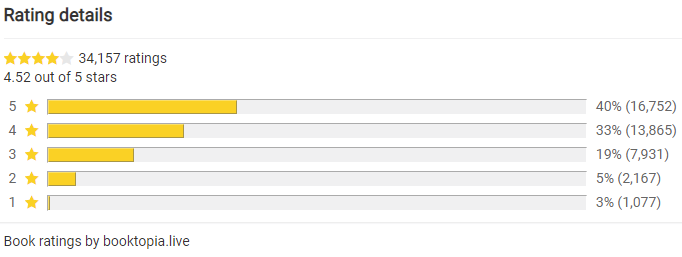With the recent correction in the real estate market, distressed homes are still represented in the market. However, the distressed property market's contemporary downward movement has also given way to an upward movement of newly constructed homes in recent months.
What Are Distressed Homes?
Distressed homes are pre-foreclosures that have been in the market for an amount of time that allows their owners to sell the property to alleviate their mortgage loan. When you purchase a home, one of your needs is to ensure that your loan doesn't go bad. You can avoid getting foreclosed on and lose your home if your loan cant be repaid. If you were to go into foreclosure, your credit would go into free fall, and, potentially, you will be unable to buy another home for over a year, depending on the time elapsed between the initial foreclosure and your application for the new home loan.
If you have gone into foreclosure or need to sell your house for a loan payoff, you are, by definition, in distress. You will have to sell your distressed property because you are in arrears on your mortgage and/or are in default on your home loan agreement.
If you can avoid foreclosure of your distressed property, its value will go down because a) you are in distress, and b) your credit will be damaged.
How You Can Get Out Of Distress:
You can do so many things to avoid foreclosure. The most obvious way is to pay off the debt and/or get current on your loan. You can make payments on the mortgage and/or your loan until it is paid off. If your financial problems are short-term, it may be possible to do this on an interest-only loan. Other lenders may ask you to pay off the entire loan in concert with a reinstatement agreement.
Another way to avoid foreclosure is to sell the property. You can put the property up for sale and get an offer from another buyer. If the sale price is high enough, your lender will allow you to sell the property under the terms of the offer. If the sale price is too low, your lender may ask you to pay the difference to the buyer. You will likely have to pay tax on the amount that is payable to the new buyer. This is because the property is sold under the terms of an offer from the new buyer.
Once you have gone through foreclosure, you can then try to cure the foreclosure. This is useful if you go through foreclosure because it allows you to save your credit for residential purchases.
How Can You Stop Foreclosure:
- First, you can try to talk to your lender to help you understand the process and avoid foreclosure. Your lender may send you letters explaining the foreclosure rights. This may also include a repayment plan to get your mortgage current.
- If you cannot talk to your lender, you can try to make your lender aware of your circumstances and your intention to work with them. You can do this by providing all the information that they need. For instance, you can provide financial statements showing how your finances have changed since the date of your mortgage agreement.
- If you cannot work with your lender, you may be able to do a loan modification or a deed in lieu of foreclosure. A modification is similar to a reinstatement. Your terms will be the same as your original mortgage agreement. However, your interest rate will be lowered, and your loan period will be extended. A deed in lieu of foreclosure is similar to a short sale. Your lender will accept a payment in lieu of foreclosure.
* Avoiding foreclosure is likely to be a year-long process. You will need to save up for this period. If you get a raise, you may be able to pay off your mortgage quicker.
* You can avoid foreclosure by paying your mortgage on time. In a short sale, the homeowner sells the property to a third party for an amount that is less than what is owed.
* You can avoid foreclosure by paying off your mortgage early. This may involve asking for a forbearance. This is different from a repayment agreement. You will need to request this type of agreement.
* You can avoid foreclosure by finding and negotiating a repayment agreement with your lender. The repayment period is similar to forbearance. This type of arrangement can postpone the foreclosure proceedings.
* You can avoid foreclosure by taking advantage of federal programs that help you avoid foreclosure. The first is the Mortgage Forgiveness Debt Relief Act of 2007. This Act authorizes the Secretary of the Treasury to offer tax relief to homeowners who remain current on their mortgage debt relief payments. The other is the Hope for Homeowners initiative. This Act assists homeowners facing foreclosure to refinance their mortgages. This is a federal program, and all states have the same policies.
* You can avoid foreclosure by getting a non-traditional loan. This type of loan does not follow the mortgage terms and terms are more flexible. This type of loan is non-recourse and will not go back to the lender if the homeowner defaults on the loan.
* You can avoid foreclosure by selling your property to a buyer. This type of sale will release you from all lien attached to your property. This is similar to a pre-foreclosure sale
This is not a comprehensive list of ways to avoid foreclosure. This is merely a brief overview of ways to avoid foreclosure. There are more choices than outlined above.
Once you have decided on the method, you will need to contact your lender and ask him for a Form 5476, Declaration of Workload, and Payment. This form will help you explain the reasons for your inability to make the full payment on your mortgage. If you do not receive a form, you will need to present this document along with your financial records.
You can also contact a HUD-approved counselor. This is a government program that can help you avoid foreclosure if you are behind on your mortgage and can help you by negotiating with your lender to reduce your mortgage payment or by modifying your existing loan to facilitate your payment to help you avoid foreclosure.
The other option is to do nothing and let your lender proceed to foreclose your property. You can contact a HUD-approved counselor to help you do nothing and let your lender proceed to foreclose your property.
I hope you found this article helpful? As you continue your quest for wealth and financial security, the investment strategies laid out in Think Like a Tycoon by Dr. W.G. Hill is the resource you should seriously consider.
Think Like A Tycoon by W.G. Hill
How to Make a Million in Three Years or Less
I am a real estate investor for 10 years now and personally involved in 40 real estate transactions. With that said, this is the book to read. Read this book if interested in real estate investing. Don't if you aren't.(Michael - Real Estate Investor)
…NOW is your golden opportunity to turn bargain property deals into 1 MILLION in just 3 years…
…using other people’s money and this property tycoon’s no-brainer strategy…
What you have to do to secure your future and avoid becoming another government statistic
It’s simple: Make your fortune from “distressed property”. And Dr. W.G. Hill can show you how.
For your convenience, we have added a link to Think Like A Tycoon on all the Amazon marketplaces, for the fastest delivery please choose your local marketplace. If "Currently unavailable" choose the marketplace nearest your location.
Note! Think Like a Tycoon is only available in English.
For your convenience, we have added a link to Think Like A Tycoon on all the Amazon marketplaces, for the fastest delivery please choose your local marketplace. If "Currently unavailable" choose the marketplace nearest your location.
Note! Think Like a Tycoon is only available in English.
America - Canada - Sweden - Germany - Italy - France - Spain - Poland - Netherland - Mexico - Brazil - India - Japan - Singapore - United Kingdom - Australia & UAE ships from the UK!) - Saudi Arabia - China -
Stay tuned for more free videos, articles, tools, and other valuable resources.
Please continue the conversation for this post on the
Think Like a Tycoon Forum - LinkedIn - Facebook
Stay tuned for more free videos, articles, tools, and other valuable resources.
Please continue the conversation for this post on the
Think Like a Tycoon Forum - LinkedIn - Facebook






